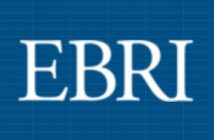Whatever area of healthcare your business is involved in, if you want to keep up with the times, you need to implement an electronic health record system. EHRs are patient-centered electronic documents that can be updated in real-time. Authorized users can instantly access information like a patient’s medical history, lab results, medications, and treatment plans. Therefore, healthcare professionals can make diagnoses and treat patients more accurately and quickly and healthcare businesses can enhance their efficiency.
If you are about to choose an EHR for your business, you need to shop around to find the best for your needs. But before you do that, you need to know what to look for in a good EHR. While your exact needs will be dependent on your business’s precise services and requirements, here are some of the features and attributes of an EHR that every organization should look for.
Image source: https://www.pexels.com/photo/woman-in-teal-scrub-suit-using-a-laptop-computer-7195113/
Implementing an EHR System
Before looking at the features your EHR should have, it is worth mentioning that you need a solid implementation plan in order for the change to run as smoothly as possible. Check out this guide for implementing an EHR so that you have the right knowledge for successfully and smoothly rolling out the system.
Look for an EHR with Automated Data Collection, Monitoring, and Reporting
By using EHRs, your healthcare business will improve its quality and safety for patient care and achieve better system efficiencies. When choosing an EHR, look for one that can improve the quality of care by enabling the automated collection of data that supports quality monitoring and reporting. That will enable your business to increase its operational efficiency and contain costs via streamlined clinical workflows.
Look for an EHR That Helps to Speed Up Processes
A good EHR makes data like patient histories, medications, immunizations, and allergies easily accessible to authorized healthcare professionals. When users have instant access to patient data, your organization can speed up the patient charting process and also reduce the time and cost of transcription.
Look for an EHR That Comes with Templates
When healthcare professionals see patients with the same conditions, they can speed up their processes by using an EHR template. With a template already in place, healthcare professionals can significantly reduce their time and speed up encounters with patients, while still providing the highest quality care.
Look for an EHR That Provides Intelligent Patient Workflows
To maximize productivity, you need to understand how patients move through your facility. So, look for an EHR that tracks patient workflows in real-time. That will enable your organization to eliminate bottleneck problems.
Look for an EHR That Supports Your Business’s Legal Needs
Working in the healthcare industry, your business is sure to need to adhere to legal rules, so look for an EHR that can support your business’s legal needs in addition to supporting patient care. While clinical uses of an EHR are vital, meeting your legal obligations is just as important. So, look for EHR software that helps your business meet legal objectives.
Look for an EHR That Provides the Task Management Capabilities Your Business Needs
When looking at the main features of an EHR to suit your needs, it can be easy to overlook the little things. But do not! You need an EHR that can do things like remind healthcare professionals to sign notes, approve medications, review lab results, and answer patient messages. When your business’s healthcare professionals have a cohesive overview of what needs to be done, they will spend less time doing things like looking for misplaced data, thus improving efficiency and productivity.





